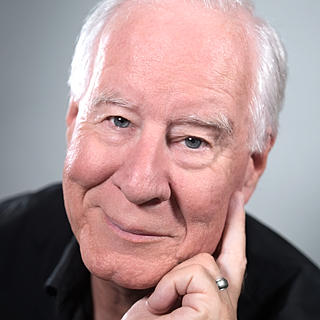IWSG July Post
- E. A. Fournier
- Jul 3, 2018
- 3 min read
Purpose: To share and encourage. Writers can express doubts and concerns without fear of appearing foolish or weak. Those who have been through the fire can offer assistance and guidance. It’s a safe haven for insecure writers of all kinds!
July 3 question - What are your ultimate writing goals, and how have they changed over time (if at all)?
It's hard to believe it's already time for another IWSG post. Okay, here goes.
My writing goals have changed significantly over the years. I know I always had the writing bug (it's a virus, isn't it?) and I always wanted to make people laugh and cry from something I'd written. In my young eyes I wanted to be remembered as one of those writers who added something worthwhile to people's lives.
I started out as a screenwriter, working (infrequently) in the television industry in LA. (Yes, of course I had another job that paid money on a more regular basis - didn't we all?) I had a writing partner. We had agents (we went through three of them!). Back then, I think I had the idea that if I could just conceive the right concept (within the limits of my own morals) and could pitch it to the right producer, I'd be allowed to write something wonderful that would make people laugh and cry (and make me money). Notice that the order of the events was odd - at least, it seems odd to me now. My early self really thought the idea was the king, you know, the twist, the notion, the never-before-thought-of-situation that makes that unforgettable poster. In my mind, the characters, the plot, the dialogue, the relationships, the stakes, etc. all came later. Looking back at that brown haired, high hoped, younger guy from the vantage point of my white haired, understated, current self, I think it's probably a good thing that he didn't succeed back then.
So, what happened to me? Well, I went from screenwriting in California to writing and directing scripts for a multi-national corporation based in Minnesota. The engineering company who hired me, thought my Hollywood background was a plus. Good for them. I flaunted that dubious reputation to the hilt, and managed to work for them for thirty years, turning their stodgy, derivative corporate communications into something fresh, funny, exciting (once in awhile), and even touching (on occasion). I wrote a lot of material over those years and the one thing they had in common was limits. I learned that you're never more creative as when you have to work within highly restrictive limits. And I learned to do the most within the boundaries the company set.
Did it satisfy that inner yearning to make people laugh and cry and be remembered as adding something valuable to their lives? No. Well, once in awhile I came close, but ultimately, no. In a very real way, I felt I was wasting my gift as a writer. (I know that sounds a bit elevated - sorry, it's what I felt.) On the positive side, I was supplying income and health plans to my family, which, after all, was my main job at the time, like it or not.
I'm retired now. While I was working, I continued to write screenplays and try to sell them, or interest people in them. As I approached retirement, I realized that novels could provide me the way to write what I wanted without having to involve a crew of people. By then, I realized that my goal had changed. I realized that some people are writers and that the vast majority of the rest are not. I mean the type of writers who compose sonnets and novels. (I'm also aware that a large proportion of today's book writers also cannot write, but we won't go there in this blog.) This writing gift of mine, which has changed over the years, and hopefully improving, is meant to help me to tell stories and to express emotions and to allow memorable characters to mount the stage and tell their own tales. I write now on behalf of those brothers and sisters of mine who cannot write. The idea, the concept, the situation, is less important than the characters, and how they relate to each other, and what they go through, and what is at risk for them.
I guess I think I'm healthier now. I'm more prepared to create stories that mean something. I hope people will still laugh and cry when they read what I've written, and I hope they take away something valuable from my books. I no longer care much about the money or the rest of my dusty hopes. It's enough for me to imagine my readers finishing one of my books, and closing the back cover with a sigh and a smile that says, "that was good."








You've made me curious to when I get older and get white hair and look back at my younger self. I wonder what I'll think of me then.